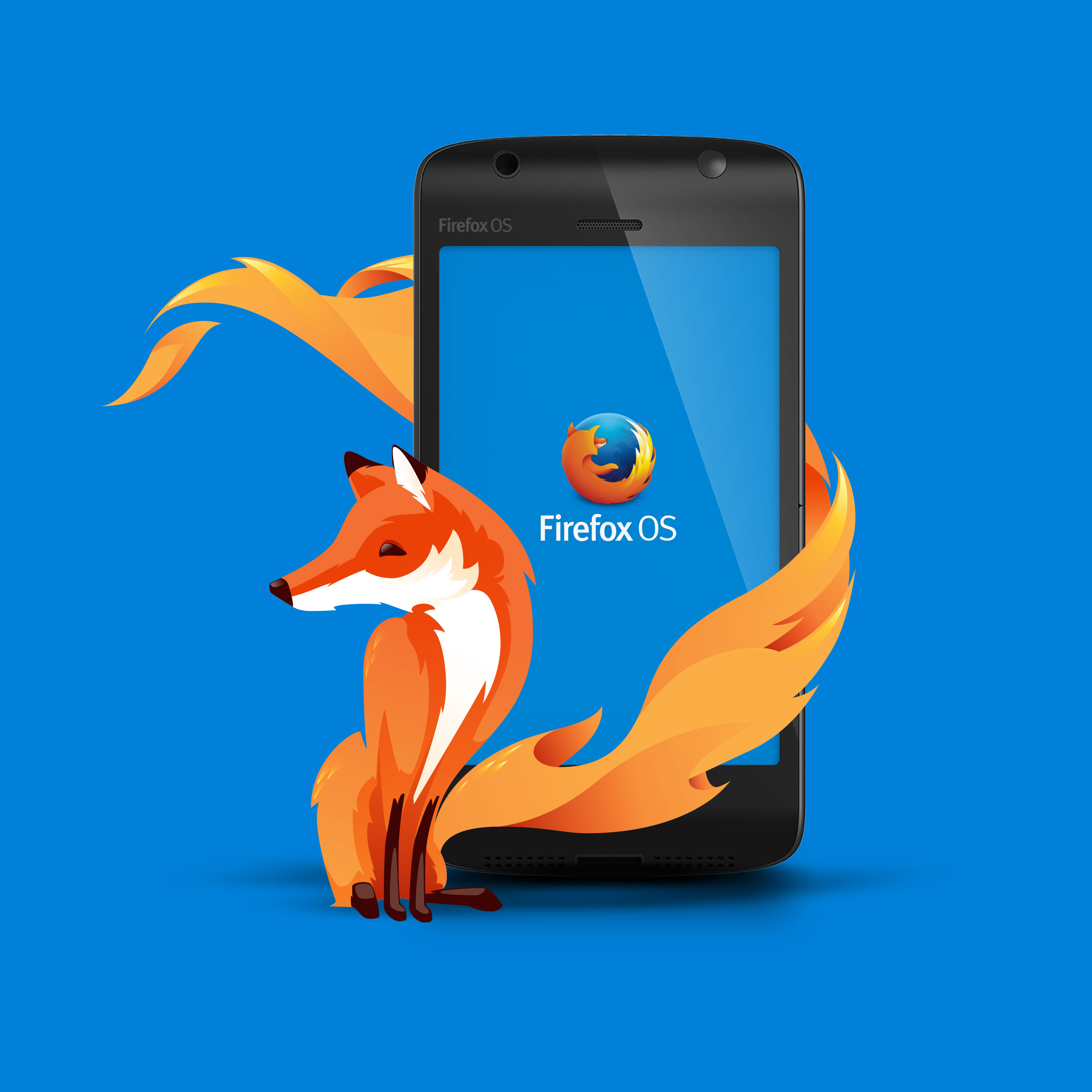Mobiles with Firefox OS have been launched in India. Many players have put their bet in harnessing the lower-end of India’s smartphone market. India has the 3rd highest number of smartphone sales on the planet, according to a 2013 Canalys report, trailing behind U.S. and China. This ultra-low-cost category of smartphone will create all new range of cheap mobiles for the Indian market.
What the market has currently to offer are smartphones in the range of Rs.2000/- and below. Intex launched its Cloud FX phone with the aim “to enable the masses to get smartphone experience at the cost of a feature phone”, as quoted by the Intex director of marketing, Keshav Bensal. We also have a “Coming Soon” of Alcatel Onetouch FireC 4020D mobiles in the same cost range on flipkart.com. We also have the planned launch of Sony with its Xperia E ported to Firefox OS, though here it is expected that there will not be much change in the cost of the mobile. Unofficially Firefox OS has been ported to Sony Xperia SP.
Firefox OS (project name: Boot to Gecko, also known as B2G) is a Linux kernel-based open-source operating system for smartphones and tablet computer. It is being developed by Mozilla, the non-profit organization best known for the Firefox web browser. As early as on July 25th, 2011, Andreas Gal, Director of Research at Mozilla Corporation, had announced the B2G project to develop mobile OS and this project was later renamed to Firefox OS. It was only in Feb 2013 that Firefox OS went for global commercial roll-out. There were several mobile companies that had committed to make Firefox OS mobiles for several European countries.
So, why will we need another mobile OS? One of the reasons quoted by Mozilla is that they wanted to create a competitive alternative to the existing single-vendor dominant mobile operating systems. In simpler terms: to create an open-source (and competitive) alternative mobile OS for the existing market. Another reason might be to get a competitive OS to run on just-enough hardware so as to make use of the existing mobiles that went out-of-market competition due to the software / hardware upgrade to latest version. The third reason as quoted earlier would be to deliver smartphones to the ultra-low end market.
 There are another set of people who will play a crucial role in the story of Firefox OS and they are the App developers. Firefox OS is developed completely using open stack which is 100% free and additionally the stack is based on HTML5. What this means is that developers for HTML5 can easily create applications on this stack. Gal says that there are literally millions of developers out there who know how to create content for the platform. In these times it cannot be denied that Apps make or break a mobile and hence we saw Windows building its App-store when it launched its mobile OS with Apps similar to those available for Android. Being open source Mozilla will depend on independent developers for these Apps, hence these developers will surely play a major role here. Hence, the question that looms large is, will the developers delve into creating applications for this new platform and what will they be expecting in return. These questions can only be answered with the passing of time.
There are another set of people who will play a crucial role in the story of Firefox OS and they are the App developers. Firefox OS is developed completely using open stack which is 100% free and additionally the stack is based on HTML5. What this means is that developers for HTML5 can easily create applications on this stack. Gal says that there are literally millions of developers out there who know how to create content for the platform. In these times it cannot be denied that Apps make or break a mobile and hence we saw Windows building its App-store when it launched its mobile OS with Apps similar to those available for Android. Being open source Mozilla will depend on independent developers for these Apps, hence these developers will surely play a major role here. Hence, the question that looms large is, will the developers delve into creating applications for this new platform and what will they be expecting in return. These questions can only be answered with the passing of time.
Another crucial and dependent factor is the hardware vendors. Currently we don’t have any large vendors getting involved in supporting Firefox OS. It seems like the small players are using this open and free platform to get a footing in the smartphone world. If these players develop enough credibility with quality products, that will also result in boosting the face of Firefox OS in a way with reference to its credibility. The other-way round can also be true and spell disaster at the same time. It seems a little distant for large players to get involved right now unless they see some gain in investing in a new mobile OS. This creates a sort of cyclic dependency between vendors and Firefox OS.
With the ability to run on minimal hardware it is going to flood the market with cheap mobiles that target the low-cost customers. This adds to the consumerist attitude of the corporate companies to extract as much possible from the market even from the low income group of people. The world is already full of electronic devices that are plaguing mankind and adding more such devices is bound to add the environmental problems. If Firefox OS takes this path then instead of being beneficial with social relevance, it may be molded into being just the opposite.
Rapid technology change, low initial cost and even planned obsolescence ensures that the mobiles go out-of-date after a certain period and newer applications and updates would require better hardware for normal functioning. Hence, a more beneficial pathway for Firefox OS would probably be to build on the existing functional mobile base and put them to better use putting them back in the market.
E-waste is a global problem; especially since many developed countries, including the U.S., ship their discarded electronic devices to less developed parts of the world where it is improperly dismantled or burned, producing toxic emissions. Therefore, it is important to dispose cell phone and to recycle the devices responsibly and ethically. There are very few mobile recycling companies and more so in India. This probably can become another entrepreneurial idea for young India. Put used mobiles back in to the market with Firefox OS making them just as good as new.







The most important priority for users should be their “Freedom” and “Privacy”. I hope Firefox OS gives importance to these while developing their ecosystem.
Firefox OS is developed by yont contributors around the world, of whom I am a part of them.
We contributors have put all our raw knowledge and skills to build it. And all this voluntarily. Thus the OS becomes cheap and the the companies like spice and intex have shown great interest to power their devices with our OS.
Maxx mobile company is next to come forward.
So that address the first question, in a way. If “Freedom” and “Privacy” are kept as primary concern then developers with “raw knowledge and skills” will definitely keep it at priority. If the code is open to all eyes to see and modify, then writing code to “steal” user data cannot be as easy as in case of closed source. Of course one can browse Android code too but the advantage in Firefox OS would be that the decision of what goes in the OS is not closed.
But what if the Apps encroach on our freedom and privacy.